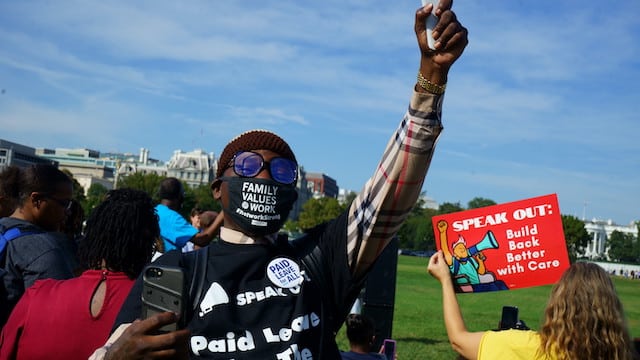Time for Paid Sick Leave in N.J.

It’s often said there’s never a wrong time to do the right thing.
That’s why Jersey City is the first city in New Jersey – and indeed the first in the region – to have a fully enacted paid sick leave law with mayoral support. Though only five other cities in the nation, and the state of Connecticut, have paid sick leave in place, the time was right for Jersey City.
Opponents claim the economy is still too weak for this kind of policy. I disagree.
Paid sick leave will help working families in Jersey City so they won’t have to choose between missing a day of work or caring for their own health or that of a family member. What’s more, not only is this a matter of basic human dignity, it is also a public-health initiative that will benefit all Jersey City residents, as well as those who work in the city.
Under the new law, companies with 10 or more employees now must provide up to five paid sick days a year, based on the number of hours an employee works. What this means is a worker can stay home with a sick child rather than sending that student to school, ensuring fellow classmates won’t be infected. It also means food handlers won’t have to report to work when sick, keeping thousands of restaurant patrons from being exposed.
These are just a few examples of why paid sick leave benefits everyone. Simply put, it’s a public-health priority.
In Jersey City, one estimate suggests about one-third of all workers prior to this law were without paid sick days. Worse, nearly half of the city’s Hispanic residents were not covered. It was time to correct this wrong.
But what about the opponents of paid sick leave who claim this measure will stifle economic growth?
The evidence strongly suggests they are off base. For instance, in San Francisco, the number of businesses and jobs increased after paid sick leave was enacted compared with the surrounding counties. The same is true in Connecticut and Seattle, where employment has grown as well.
It’s worth noting that in San Francisco, there has been limited employee turnover and more loyalty to employers among employees, reducing replacement costs for businesses. And, according to one analysis, 86 percent of employers polled said the law didn’t negatively impact their profits, while only a third reported any problems implementing it.
Studies also find that it costs employers $160 billion annually when employees show up to work sick because of lower productivity. Interestingly, the head of San Francisco’s restaurant association even did an about-face after fighting its passage, saying several years after paid sick leave was implemented that it’s “the best public policy for the least cost.”
But, just in case Jersey City proves to be an anomaly compared with all the other locations that have instituted paid sick leave, we intend to have Rutgers University study the results a year after implementation.
The goal of a paid sick leave measure is not to hurt businesses, but to have them help their employees and customers. If results elsewhere are any indication, Jersey City should actually have a competitive advantage over other large cities in the region.
That’s why this was the right time to do the right thing in Jersey City.